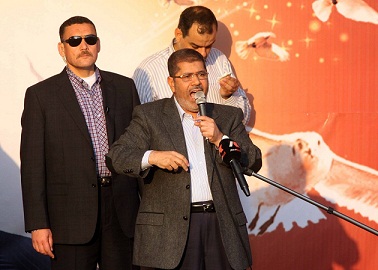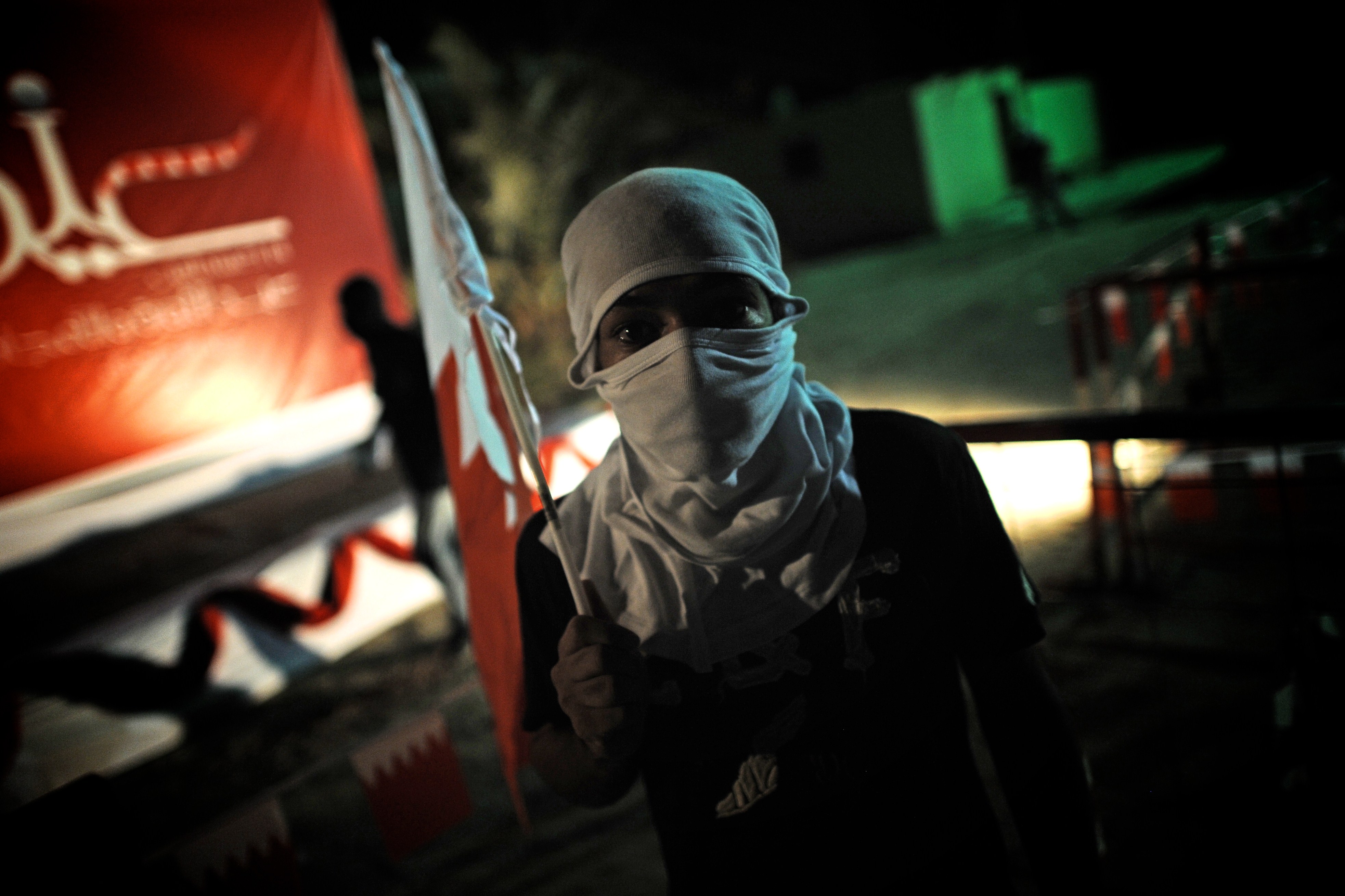Independence was the key word at the Arabshorts.net Independent Film Festival last week, showcasing over 67 productions from the Arab world.
Marking the launch of the website, Arabshorts.net, where these films will be hosted, the films were screened in a three-day stint at the Tahrir branch of the Goethe Institute starting Dec 10. A variety of genres and techniques in filmmaking were thus brought together by nine curators from nine regions in the Arab world.
Day one kicked off with screenings from the host country, Egypt. “One In a Million by Nadine Khan focused on three different sequences that capture the mood of Cairo: boys meandering in the street, a wedding party in a car, and guards playing cards and listening to the radio.
“I wanted the three sequences to be isolated. They had their own rhythm to reflect the rhythm of Cairo, director Khan said. The improvised jokes among the boys on Cairo streets, commenting on passersby were as the director correctly described “like stealing moments. Made in 2006, the film was also put up as an installation at Washington Museum and the Dubai Art Fair.
“Sabah El-Fol (Rise and Shine) and “Ascenseur (Elevator) were among the two multiple award-winning Egyptian films screened. Starring film star Hend Sabry, the former aptly details the routine of a working woman before she leaves home through the one unbroken shot. On the other hand, “Elevator, where a woman is seen talking to a stranger about her predicament of being caught in a lift, seems claustrophobic and long-drawn even for a short film.
The spirit of the festival could not have been better summed up than by Mohamed Hammad’s controversial “Central, which follows an eavesdropping telephone booth attendant. Asked why his characters were portrayed as flawed, Hammad, who was present at the screening, expressed that his purpose was not to judge characters but display them. Finally though, said Hammad, “It’s my own independent film. No one will ask me about the money. So I did it [my way].
Unlike the Egyptian films, their Palestinian counterparts carried a more unifying theme. All Palestinian shorts were defined by a keen awareness of “distance from a desire, or the homeland, or one’s own identity. In “The Shooter by Ihab Jadallah, the main character rues that he cannot be a hero like John Wayne in a Western, and must instead be resigned to playing the bad guy or the terrorist by virtue of being a Palestinian.
“The Diver by Jumana Emil Abboud shows a diver who in search for a heart, and a home, is found immersed in various situations in time-lapse photography, including being wrapped up in vine leaves. In “The Last Station, a distance exists between perception and reality of Palestine, where “the road to home was more beautiful than home itself.
Sometimes, this distance from the subject matter created irony. An amusing entry was Mahdi Fleifil’s “Arafat and I, a black and white short in which the lead character, Marwan, has a comical idealization of Palestinian leader Yasser Arafat. Marwan tries to pass on his indulgence to his girlfriend, Lisa, who shares the same birthday as Arafat, but fails to do so, instead losing his girlfriend. Later, he ponders to his friend, “Do you think Lisa left me because I’m an Arab?
While portraying the hilarity of Marwan’s predicament, the director Fleifil is nevertheless also showing a serious concern with identity of Marwan and his friend Mustafa who are Palestinian-Arabs living in London. Marwan’s friend, Mustafa, calls himself “a Londoner and “not an Englishman. Marwan refers to himself as a Palestinian when with Mustafa, but as an Arab when with Lisa.
A concern with passports and identity also crops up in Annemarie Jacir’s “Like Twenty Impossibles, an autobiographical short depicting the filmmaker’s troubles in filming across the Israeli-Palestinian border. Yet the fearless and cocky Americanized posture carried by the character of Jacir around Israeli soldiers appears fake and overbearing. While surrounded with guards with machine guns, with friends in apparent danger, Jacir’s character shows no fear or hesitation, instead questioning the guards. Aptly, one guard asks, “If you are Palestinian, then why are you carrying this [American passport]?
The theme of distance is tackled more directly in “We Began by Measuring Distance by Basma Al-Sharif, where distances between cities become politically charged, and the distance between a city in Palestine and Jerusalem is one that keeps changing.
While distance and the resulting alienation of the artist were tackled in Palestinian films, the films picked from the Gulf region by curator Haig Aivazian were loosely tied by theme of youth. This, said Aivazian, was because Arab countries were seen as young countries, and Arab cinema was also young.
Along with the concern of youth comes the understanding of newfound boundaries in films such as “Belooh, where one of two friends starts to wear the veil. A group of village kids venture in to the city end up playing football with city kids in the endearing film, “Sharq.
An animation entry from Saudi Arabia by Mohamed Al Tamimi, “PG+ humorously tackles the restrictions on sex, violence and foul language in cinema. Two cloud shaped characters appear in three sequences each time, with their content censored. Censorship which positions the state in the role of a parent, placing the audience in the state of childhood, is thus aptly tackled through animation.
Another short film from Saudi Arabia, “Badri, is a student project where a youth finally confesses his feelings to a love interest, and finds them returned. The film is a glance at a segment of adolescent lives in Saudi where parties go on in basements, around pool tables, soft drinks, and songs on the guitar.
The Kuwaiti entry, “Mama, directed by Laila Marafie, reflects on a more serious subject matter, where a young mother named Mama mimes the motions of killing her children. The movie uses sound to reproduce the incident of killing rather than the enactment of the murder. Mama, too young to be a mother, also defies norms and authority by praying in the wrong direction and slapping a man that attempts to correct her.
Filmmaker Marafie also talked about Kuwait as a young cinema, “still starting, and where a few female directors are now emerging. Being in Kuwait, said the filmmaker, “I never really got to see movies; I wasn’t allowed to. Marafie herself sidelined the authority by going online and downloading scripts.
Moviemaking involved on making do with available finances, said Marafie, reflecting the spirit of much of independent cinema, “Many people come and work in the film without getting paid, because they love it.
Films screened at Goethe also came from Algeria, Lebanon, Morocco, Syria, Tunisia and Jordan, and are also hosted at the website www.Arabshorts.net. Goethe hopes to host the second edition of the Arabshorts.net festival early next year.


